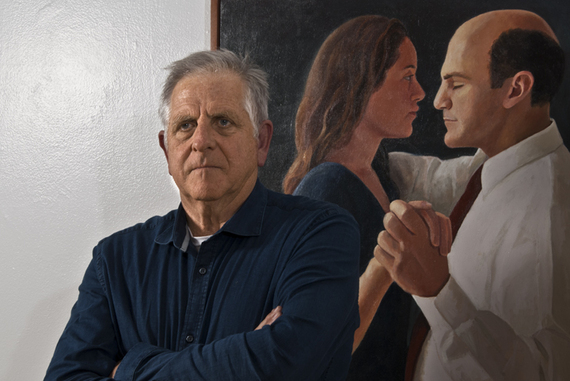The Father: Movie Review
The Father is an extraordinary film, from Florian Zeller’s 2012 play entitled Le Père and directed by Zeller. I’m here to tell you why it is a ‘must see’.
The film has six Oscar nominations: Best Picture: Phillippe Carcassone, producer, Best actor: Anthony Hopkins, Best Supporting Actor: Olivia Colman, Best Production Design: Cathy Featherstone, Best Film Editing: Yorgos Lamprinos.
If that doesn’t sell you, the performance by much-beloved actor Anthony Hopkins and the superb screenplay that Florian adapted with Christopher Hampton (Atonement) should.
Because of the subject matter, many viewers who cannot bear to watch the deterioration of a life won’t be sold—though we all face this possibility.
I’m here to tell you that the film is so original, so moving, so beautiful—even in its cruelty—that it will stay with you long after you’ve given it a chance.
In addition to the performance by Anthony Hopkins, a feat that tops virtually all the good work he has done, the screenplay skirts a narrative cliff that most writers, with perhaps the exception of Shakespeare in King Lear, fear to risk: Madness.
What Zeller and Hopkins achieve here is an interior view of the losses that dementia brings. They do it with such insight and humanity that viewers will never again view this horrific illness the same way.
For many of us who have seen too much about this subject and who assume that the ill person knows nothing but confusion, if even that, we learn anew and that difference in this film makes it, not only remarkable, but ground breaking.
Let me assure you, I do not make the comparison of Zeller to Shakespeare lightly.
The film is put together swiftly in 97 minutes for full effect like a five-act Shakespearean play building to the climax and denouement that occurs in the last 10 minutes of the “flick”—and using that word causes me pause, for this film and its performance by Hopkins should be named “masterpiece” instead.
One of the leitmotifs that holds the film and pushes the deeply layered conflict subtly forward is “time,” as Hopkins’ character, named Anthony, searches over and over for his watch that he mistakenly assumes has been stolen or lost: “My watch is on my wrist for the journey … ,” is the line that resonates and will ring for you, as it did for me, when Hopkins utters this phrase with humane insight as his performance leaps into your heart at the film’s brilliant and moving close.
It is “time” in a lifetime that this film and its main character confront over and over.
The film and the melodic repetition are supported by a powerful soundtrack that relies heavily on a stylistically operatic, tragic score by Ludovico Einaudi. Einaudi scored five days of music, each named in the credits as a day—and it is clear, at least to me, that this maestro understood well the five-act comparison I have made to the structure of a Shakespearean tragedy.
I do not mean here to underplay the touching, poignant performance by Olivia Coleman who plays Anthony’s daughter, struggling to help him, to find her way through this troubled maze. She is marvelous.
But Hopkins owns this film and he will own your soul.
Rent it now—or see it in theater if our troubled Covid-times allow.
One thing, for sure: You will never again look at a human being suffering dementia in the same way. Your heart, your being, your understanding of life and its endings will be transformed.
This article is brought to you by the author who owns the copyright to the text.
Should you want to support the author’s creative work you can use the PayPal “Donate” button below.
Your donation is a transaction between you and the author. The proceeds go directly to the author’s PayPal account in full less PayPal’s commission.
Facts & Arts neither receives information about you, nor of your donation, nor does Facts & Arts receive a commission.
Facts & Arts does not pay the author, nor takes paid by the author, for the posting of the author's material on Facts & Arts. Facts & Arts finances its operations by selling advertising space.


